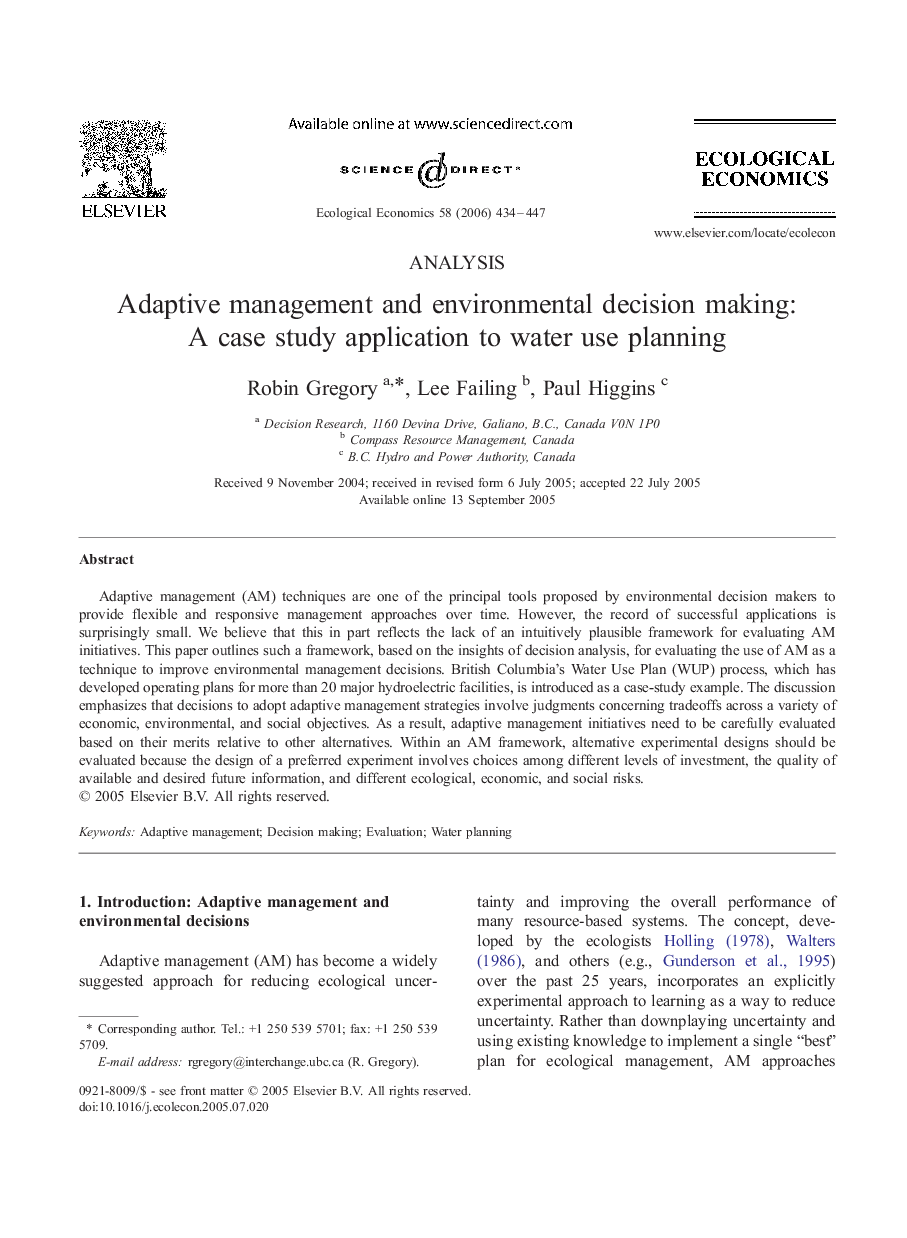| Article ID | Journal | Published Year | Pages | File Type |
|---|---|---|---|---|
| 5052524 | Ecological Economics | 2006 | 14 Pages |
Abstract
Adaptive management (AM) techniques are one of the principal tools proposed by environmental decision makers to provide flexible and responsive management approaches over time. However, the record of successful applications is surprisingly small. We believe that this in part reflects the lack of an intuitively plausible framework for evaluating AM initiatives. This paper outlines such a framework, based on the insights of decision analysis, for evaluating the use of AM as a technique to improve environmental management decisions. British Columbia's Water Use Plan (WUP) process, which has developed operating plans for more than 20 major hydroelectric facilities, is introduced as a case-study example. The discussion emphasizes that decisions to adopt adaptive management strategies involve judgments concerning tradeoffs across a variety of economic, environmental, and social objectives. As a result, adaptive management initiatives need to be carefully evaluated based on their merits relative to other alternatives. Within an AM framework, alternative experimental designs should be evaluated because the design of a preferred experiment involves choices among different levels of investment, the quality of available and desired future information, and different ecological, economic, and social risks.
Related Topics
Life Sciences
Agricultural and Biological Sciences
Ecology, Evolution, Behavior and Systematics
Authors
Robin Gregory, Lee Failing, Paul Higgins,
